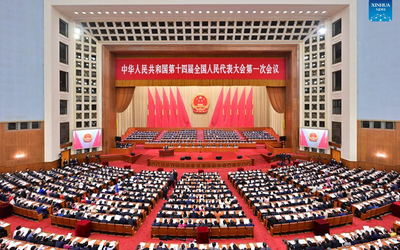Nepal is one of the oldest countries in South Asia having a long tradition of independent and sovereign state, run under various laws, costumes, rules and regulations. Nepal has experimented several constitutions and the country is all the time governed under laws, decrees and customs. It is unfortunate that Nepal’s century old proud history was overlooked following the Janandolan II and many foreign experts came to Nepal as if Nepal was a state having no laws and rules. Many foreigners shared their impressions about Nepal as if this state was still governed like in 14th and 15th centuries. But that was completely wrong. To set things straight, Nepal Law Commission launched a website where all the acts, rules, and regulations of Nepal were made available. Nepal Law Commission is collecting laws, regulations, decrees and other such matters that came in force in the country over centuries. We have made acts after passing the phase from religious and customary rules. Nepal has hardly made any efforts to document and archives its own laws. Several translations were made in the interest of foreigners, to meet their needs. To overcome these lapses, Nepal Law Commission has launched a website, trying to put together all the laws, regulations, costumes, and decrees.
Nepal’s legal history is rich in traditions, practices and decisions. For example, the first environment act was promulgated by Ram Shah. In his act, he stressed planting trees at the edges of the road. Similarly, his act also made arrangement to fine Rs.5.00 for illegally felling the trees. This is the foundation of Nepal’s environment act. We have many foundations of laws. We have already translated many laws. We have 299 laws in Nepali and 253 in English. Now, one can log in to see the Nepalese acts, rules and regulations from any parts of the world.
The website is growing into an electronic legal archive. When we started this website, our aim was to collect just existing acts, rules and regulations. But, Nepal Law Commission is adding all the acts and regulations available. The commission received some of the documents which were reported to be burnt in the great arson of Singha Durbar. From institutions to the individuals, all are giving Nepal Law Commission their support. Our archive now has legal practices of Jayasthti Malla, Ram Shah and Prithivi Narayan Shah and other documents.
Our plan is to place all the acts and regulations in the finger tips. Of course, there is a lack of human resources and other constraints in the doing the work as desired. Yet Nepal’s evolutionary process of legal system will be easy to figure out once we place all the acts and their amendments of the acts. Laws always change in accordance with the social dimensions or dynamism. In the course of transformations, the progress of society depends. If the ruler is autocrat, the law formulated will be different. If the ruler is liberal, the acts seek to protect the rights of people. One needs to read the laws to know what type of economic, political and social system we envisioned over time. The economic policy of finance ministry helps only so much to know the economic system. One needs to read the economic system differently.
Nepal has many things to be proud about like its natural beauty, culture and traditions. Some of them are natural creations and some of them are created by us. Although it is rarely highlighted, Nepal’s long legal history has its own characters and traditions. This is also a matter everyone needs to be proud about. Nepal’s long legal history was a creation of our forefathers and ancestors. The country’s legal and governance systems are also matters of our pride. British people are proud of their own legal system and Americans are proud about the role played by their Supreme Court. They are proud of their own system because they delivered the outcome. The British and American legal systems were refereed in our courts. Our court often refers decisions of American Supreme Court, and Indian Supreme Court.
The problems with us was the acts were not archived well. If we read our legal history, it has long traditions and some of them are very progressive. For instance, many foreigners learn from our traditions. In many countries, the new laws, which are in practice in Nepal, are in the process of formulation. India has recently decided to draft anti-corruption act and to establish Ombudsman body like Lok Pal. However, Nepal has already established the institution like Commission for Investigation of Abuse of Authority (CIAA) and anti-corruption act which empowers the investigative authority to file the cases against anybody. Our experiment and exercise will be complimentary to India where the laws are in the process of drafting. In terms of controlling corruption, CIAA Act and Anti-Corruption Act are very progressive and forward. Our act will be one of the examples.
We did not have a well documented history of legal system as it evolved in Nepal. Our laws were confined to Nepal and were in the knowledge of a limited few. After the Janandolan II, foreigners started to pour into Nepal projecting this country as if it had no legal and constitutional history, and practices. The concept to put all legal documents into one website for everybody to log on came into fruition. Confined to book formats for a long period of time, Nepal’s legal system is now accessible to all at the Nepal Law Commission’s website: nepallawcommission.gov.com and it is already a repository of acts, regulations, conventions and decisions. Not only Nepalese, but anybody with interest in Nepalese legal history, including the foreigners who had doubts, can log in to the site from around the world.
(As Banjade, Secretary of Nepal Law Commission, told the New Spotlight)
- SWISS SUPPORT: Construction Of A Trekking Trail In Koshi
- Dec 19, 2024
- PM OLI'S VISIT TO CHINA: BRI Agreement
- Dec 16, 2024
- RASUWAGADHI AND SANJEN: Begin Generation
- Dec 03, 2024
- NEPAL, INDIA ELECTRICITY TRADE Nepal's Advantage
- Dec 02, 2024
- PM Oli'S VISIT TO CHINA: Nepal's Dilemma
- Dec 01, 2024
















